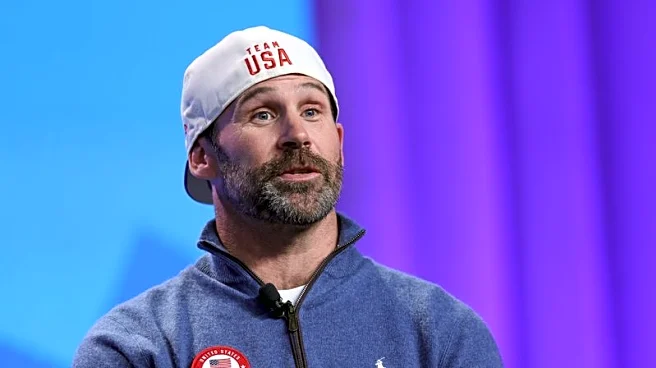What's Happening?
Hani Almadhoun, co-founder of the Gaza Soup Kitchen, recently spoke with ABC News' Linsey Davis about the ongoing humanitarian efforts in Gaza and the potential for a ceasefire. The discussion marks two years since the conflict in Gaza began, a period during which Almadhoun has been actively involved in providing aid to those affected by the war. He also took the opportunity to remember his late brother, Mahmoud Almnadhoun, who played a significant role in these efforts. The conversation highlights the challenges faced by aid organizations in conflict zones and the critical need for sustained support and potential peace agreements to alleviate the suffering of civilians.
Why It's Important?
The situation in Gaza remains a significant humanitarian concern, with ongoing conflict severely impacting the lives of its residents. The work of organizations like the Gaza Soup Kitchen is crucial in providing much-needed relief to those affected by the violence. A potential ceasefire could pave the way for more stable conditions, allowing for better access to resources and aid. This development is particularly important for international stakeholders and humanitarian groups who are working to address the crisis. The broader implications of a ceasefire could also influence regional stability and international diplomatic efforts aimed at resolving the conflict.
What's Next?
If a ceasefire is achieved, it could lead to increased humanitarian access and a reduction in hostilities, providing a window for rebuilding efforts and more comprehensive aid distribution. Stakeholders, including international governments and NGOs, may need to prepare for a shift in strategy to support long-term recovery and peace-building initiatives. The international community will likely continue to monitor the situation closely, with potential diplomatic engagements aimed at ensuring the ceasefire holds and addressing the root causes of the conflict.
Beyond the Headlines
The ongoing conflict in Gaza and the efforts of organizations like the Gaza Soup Kitchen underscore the complex interplay between humanitarian aid and political dynamics in conflict zones. The ethical considerations of providing aid in such environments, where access can be restricted and needs are immense, highlight the challenges faced by aid workers. Long-term peace and stability in the region will require addressing underlying political issues and ensuring that humanitarian efforts are supported by sustainable development and conflict resolution strategies.











